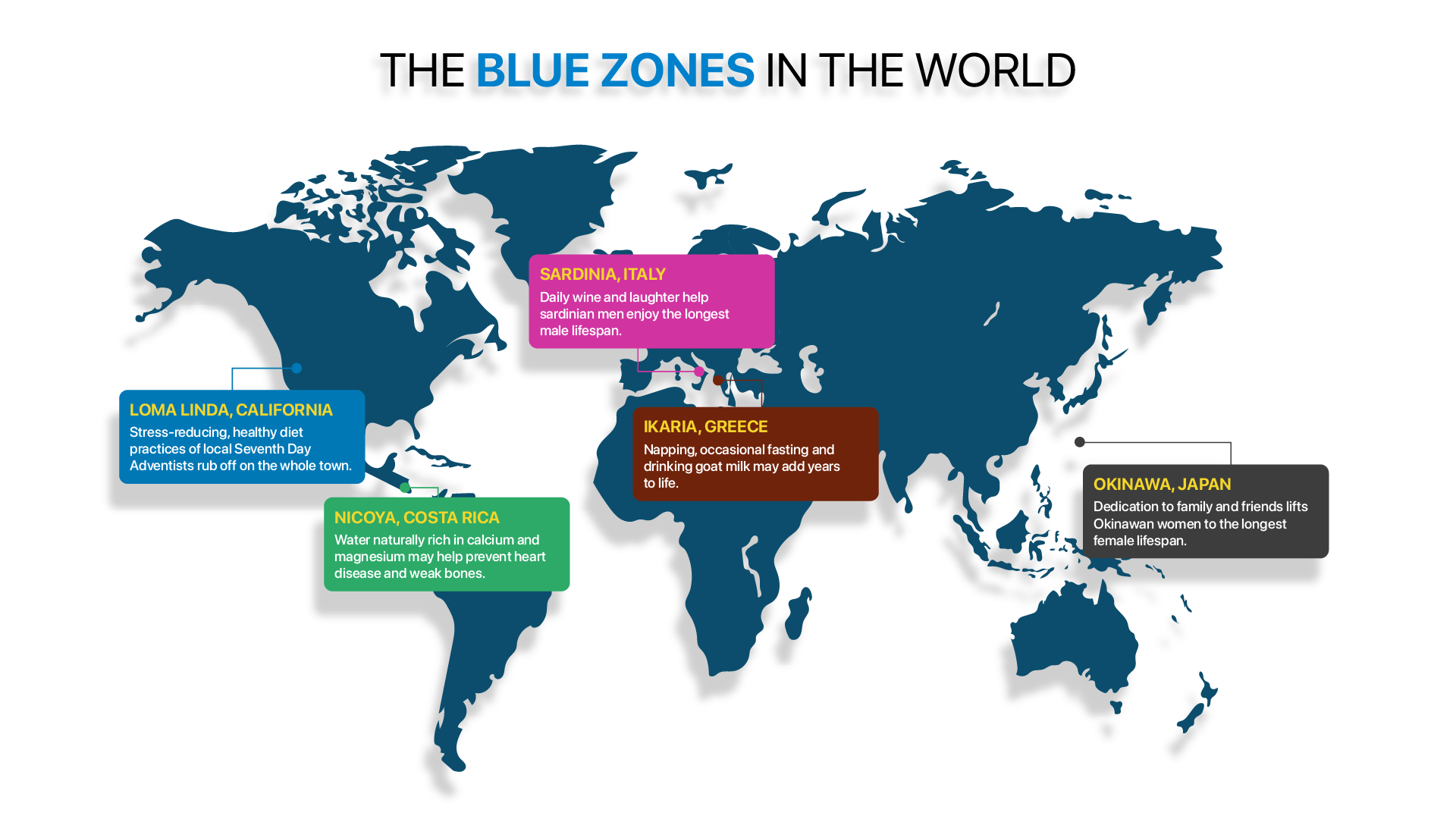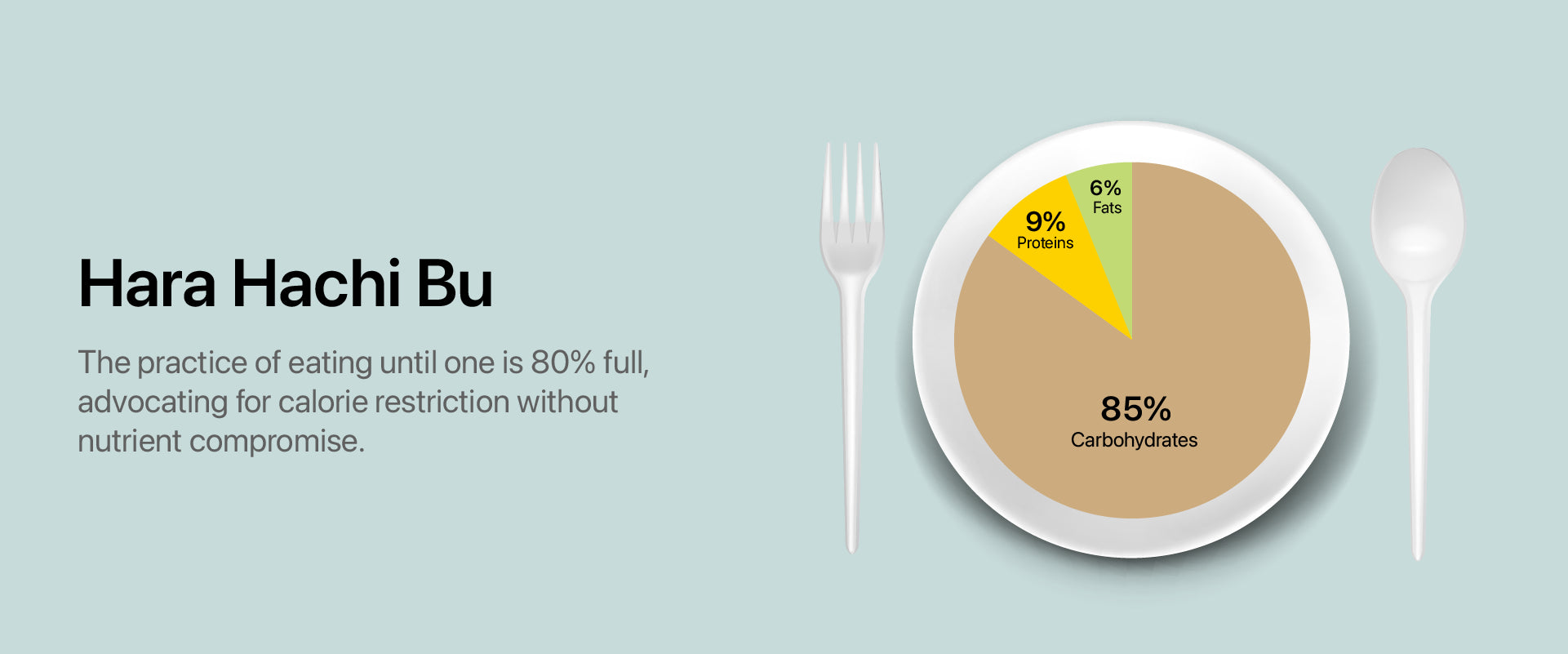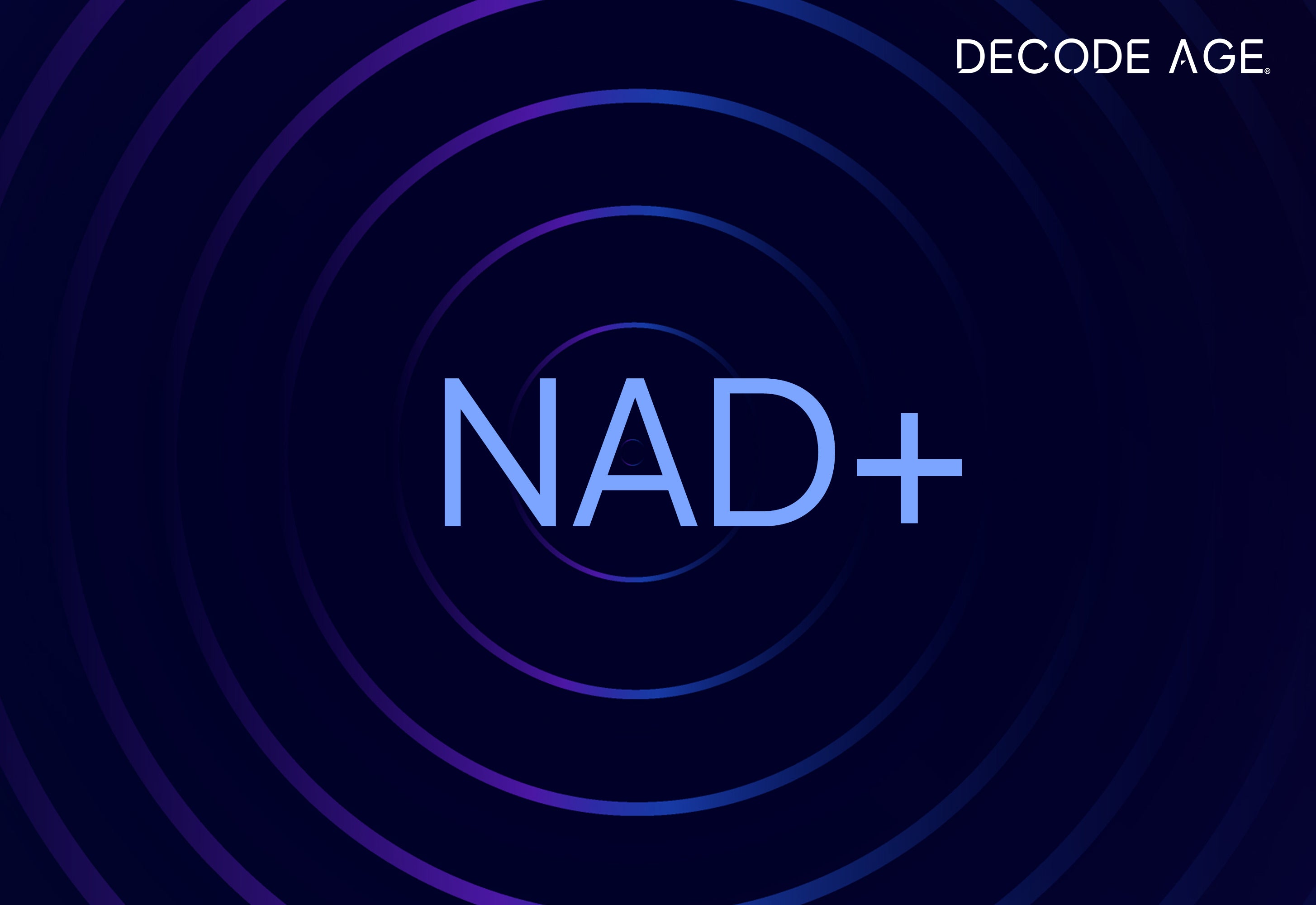Imagine a world where you can enjoy food without worrying about calorie counts. This world exists in the Blue Zones, where longevity diets have become a way of life! These individuals embody the essence of eating practices woven into the fabric of cultures known for their remarkable lifespans and vibrant health. Our journey into the world of these diets reveals three distinct yet equally fascinating eating philosophies – fasting-mimicking diet (FMD), traditional Okinawan diet, and Mediterranean diet.
These diets share a common thread—they're based on the wisdom of those who've lived healthy into their later years, supported by decades of research and a deep understanding of the human body. They remind us that longevity isn't about restricting or counting but about living in a way that naturally aligns with our health and happiness.
What is a Longevity Diet
Longevity Diet, as the name suggests focuses on various dietary approaches that aim to support healthy ageing, with Longo's Fasting-Mimicking Diet (FMD) being a notable example. This is crafted by Valter Longo who advocates for a plant-centric approach to eating to promote longevity and health. Evidence supporting these diets' effectiveness can be seen in the Blue Zones, regions known for exceptional longevity and a high number of centenarians, including Okinawa, Sardinia, Nicoya, Ikaria, and Loma Linda.

Science Behind Different Blue Zones Diet
Promoting longevity involves following various strategies, with diet playing a crucial role. However, it's essential to optimise diet composition and quantity to prevent malnourishment and frailty, tailoring them based on individual characteristics such as the genome, body size and fat levels, biological age range, sex, and health status. Dietary changes from these Blue Zones diets have been observed to enhance metabolic function, reduce inflammation, delay immunosenescence, decrease oxidative damage, and improve proteostasis. The regulation of this has the potential to delay ageing and lower the risk factors, and incidence of age-related conditions.
Types of Longevity Diet
Blue Zones diets are the result of cutting-edge research and extensive testing, complemented by the wisdom of centenarians. This has led to the development of three distinct forms of diet:
The Fasting-Mimicking Diet (FMD)
The Fasting-Mimicking Diet (FMD), conceptualised by Professor Valter Longo of the USC Leonard Davis School, is a revolutionary 5-day plan that simulates the effects of fasting while allowing the intake of essential nutrients. This diet is distinguished by its high content of unsaturated fats and its low calorie, protein, and carbohydrate profile, designed to ease the fasting process for individuals. FMD presents a less rigorous alternative to intermittent fasting. It offers a feasible approach to harness similar health benefits without the need for complete fasting.
Structured around a cycle that spans five days, the FMD regimen begins with a day where individuals have to consume 1,100 calories. This includes 11% proteins, 46% fat, and 43% carbohydrates. The calorie intake is reduced to 725 daily for the subsequent four days, with a nutritional composition of 9% proteins, 44% fat, and 47% carbohydrates. Throughout this period, individuals are encouraged to drink at least 70 ounces of water daily, supporting hydration and the diet's efficacy.

This longevity diet may not be advisable for certain groups including
- Pregnant or breastfeeding women.
- People suffer from conditions like hypertension, diabetes, liver ailments, or other chronic diseases.
- Individuals with eating disorders or underweight issues.
|
Advantages |
Disadvantages |
|
✔️Aids weight loss particularly reduces belly fat by inducing calorie restriction, promoting fat burning, and preserving lean muscle mass. |
❌Demands careful planning and monitoring to fulfil the body's nutritional requirements effectively. |
|
✔️Improves metabolic health by regulating cholesterol, blood sugar levels and blood pressure. |
❌Requires professional supervision to suit individual’s health needs and safety. |
|
✔️Reduces systemic inflammation |
|
|
✔️Enhances cellular repair by autophagy and cellular regeneration. |
|
|
✔️Boosts the efficiency of the immune system |
|
|
✔️Improves cognitive function and delays the onset of neurodegenerative diseases |
The Okinawa Diet
The Okinawa diet is rooted in the eating habits of the long-lived residents of Okinawa, Japan. This dietary pattern is distinguished by its heavy dependence on yellow, orange, and green vegetables, with the purple potato taking precedence over the more common grains found throughout Japan. Reflecting similarities to a macrobiotic diet, even though with some inclusion of animal products, this diet is notably low in sugar and grains, consuming approximately 30% less sugar and 15% fewer grains compared to the general Japanese population.
Central to the philosophy of this longevity diet is the "Hara Hachi Bu" principle.
Despite its lower calorie and fat content, this diet constitutes 85% carbohydrate, 9% proteins, and 6% fat (2% sat. fat). This approach, coupled with a 1,200 daily caloric intake significantly lower than Western standards, emphasizes the consumption of nutrient-dense foods. The inclusion of herbs and spices, such as turmeric and mugwort, further underscores the diet’s foundation in treating food as medicine.

|
Advantages |
Disadvantages |
|
✔️Supports weight management by whole, unprocessed foods and calorie restriction |
❌Exclusion of certain foods which may challenge strict adherence and limit essential nutrients. |
|
✔️Enhances bone health through calcium-rich foods like tofu and leafy green |
❌Contains high sodium intake leading to fluid retention in blood vessels, and increasing blood pressure. |
|
✔️Nurtures gut microbiome and reduces gastrointestinal issues with the help of fibre-rich vegetables and legumes |
❌Difficult for individuals due to cultural and taste differences, affecting long-term adherence and enjoyment. |
|
✔️Lowers the risk of chronic diseases such as heart disease, cancer, and diabetes. |
❌Strict adherence without careful planning may lead to deficiencies in certain nutrients, such as vitamin B12. |
|
✔️Supports brain health and cognitive function. |
|
|
✔️Has anti-inflammatory and antioxidant properties. |
The Mediterranean Diet
The Mediterranean diet, rooted in the culinary traditions of the Mediterranean region over thousands of years, is characterized by its emphasis on whole, plant-based foods. This dietary pattern, represented by the Mediterranean Diet Pyramid, highlights the consumption of whole grains, olive oil, fruits, vegetables, legumes, nuts, herbs, and spices as daily staples. Unlike strict diet plans, this diet is more of an eating pattern, allowing flexibility in portion sizes and food choices based on individual needs. Animal protein, such as fish and seafood, are consumed in moderation, while other animal products are limited. This diet's longevity-promoting benefits are attributed to its rich array of nutrients, including heart-healthy fats, fibre, vitamins, and antioxidants, as well as its focus on natural, unprocessed foods.
The Mediterranean diet is unique for its emphasis on healthy fats like olive oil, omega-3-rich foods such as walnuts and fish, and a preference for fish over red meat. It also encourages water as the main beverage, moderate wine intake, and daily physical activity.
This longevity diet may not be advisable for certain groups including
- Pregnant women or ones with breast cancer aren’t advised to consume alcohol.
- Individuals with health conditions such as diabetes, pancreatitis, or GERD should limit red wine consumption.
- Individuals with celiac disease or lactose intolerance may experience digestive discomfort
|
Advantages |
Disadvantages |
|
✔️Reduces risk of diabetes, Alzheimer's disease and cardiovascular diseases. |
❌Lead to weight gain upon high consumption of fats from olive oils and nuts |
|
✔️Helps in weight management and obesity prevention by controlling calorie intake. |
❌Higher risk of iron and calcium deficiency. |
|
✔️Potential cancer prevention through action of antioxidants, fibre, and phytochemicals. |
❌Expensive to maintain due to the need to consume fresh produce and seafood |
|
✔️Improves brain health |
|
|
✔️Supports healthy gut microbiome leading to improved gut health |
|
|
✔️Has anti-inflammatory properties |
Conclusion
The analysis of longevity diets reveals a fascinating combination of science, tradition, and health. Whether it's the Fasting-Mimicking Diet's innovative approach to simulating fasting benefits, the Okinawan diet's emphasis on nutrient-dense, low-calorie foods, or the Mediterranean diet's celebration of heart-healthy fats and diverse plant-based foods, each diet offers unique ways to extend lifespan and enhance health. Despite their differences, a common theme unites these diets: a focus on whole, minimally processed foods, mindful eating, and the importance of dietary patterns tailored to individual health needs and lifestyles.
While these diets demonstrate the potential for dietary choices to significantly impact longevity and well-being, they also highlight the importance of adaptability and personalization. Considering potential disadvantages, it's crucial to approach longevity diets with a balanced perspective, incorporating professional guidance and making adjustments as necessary. Ultimately, the journey toward a longer, healthier life is not about rigid dietary restrictions but about finding joy and nourishment in the foods we eat, guided by the wisdom of centenarians and the latest scientific research.
FAQs
What is the best diet for longevity?
The best diet for longevity is one that prioritizes whole, minimally processed foods, promotes mindful eating, and is tailored to individual health needs and lifestyles. Diets similar to the Mediterranean diet, healthy plant-based diets, or the Okinawan diet are excellent choices. These diets are rich in whole foods, emphasizing the importance of quality nutrients for overall health and longevity.
What are the 7 keys to longevity?
The seven keys to longevity include eating a healthy diet, exercising regularly, getting enough sleep, avoiding tobacco, managing stress, stimulating your brain, and engaging socially. The idea of healthy lives can be taken from the eating and lifestyle habits followed in blue zones. These practices, when adopted by middle age, can potentially add up to 24 more years for men and 21 more years for women.
Is fasting mimicking better than actual fasting?
Fasting mimicking diet (FMD) offers advantages over traditional fasting by providing a controlled intake of essential nutrients. This allows individuals to experience fasting's benefits while still receiving vital nutrients, reducing concerns such as nutrient deficiencies associated with long-term fasting having positive effects on both cellular and healthspan.
4) What are the top foods in the Mediterranean Diet?
The top foods in the Mediterranean Diet include vegetables, fruits, extra virgin olive oil, whole grain bread and cereals, legumes or beans (such as chickpeas, kidney beans, or lentils), nuts and seeds, fish and seafood, and onion, garlic, and other herbs and spices (like oregano, coriander, and cumin).
5) What is the rule for eating in Okinawa?
The rule for eating in Okinawa is "Hara Hachi Bu," which means to stop eating when you're 80% full. This practice of calorie restriction and mindful eating is a cultural norm in Okinawa and is believed to be one of the reasons why it has a higher percentage of centenarians than anywhere else in the world.

























Leave a comment
All comments are moderated before being published.
This site is protected by hCaptcha and the hCaptcha Privacy Policy and Terms of Service apply.